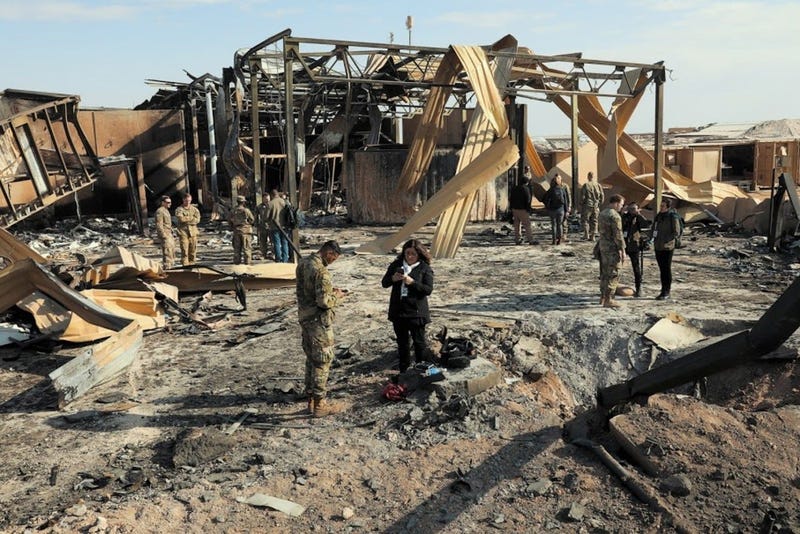
A Pentagon spokesman on Friday confirmed that at least 34 U.S. troops were diagnosed with concussions or traumatic brain injuries from the Iran missile strike in Iraq.
As for whether those service members could receive Purple Hearts, Hoffman said that will be left up to individual service branches, but based on eligibility criteria, some could qualify.
The Defense Department will continue to review injuries from the attack on Al Asad Airbase on Jan. 8, Hoffman said.
Last Friday, CENTCOM confirmed the first 11 injuries.
"While no U.S. service members were killed in the Jan. 8 Iranian attack on Al Asad Airbase, several were treated for concussion symptoms from the blast and are still being assessed," Capt. Bill Urban, spokesman for U.S. Central Command said on Friday.
Then, military leaders said an undisclosed number of additional service members were flown from Iraq for "potential injuries" out of "an abundance of caution."
"Given the nature of injuries already noted, it is possible additional injuries may be identified in the future," Urban added, referencing the delay in symptoms characteristic of some concussive injuries.
Early reports from President Donald Trump and military leaders indicated that no U.S. troops were injured following the strike.
“I’m pleased to inform you the American people should be extremely grateful and happy. No Americans were harmed in last night’s attack by the Iranian regime,” Trump said the day of the attack.
When asked this week, Trump said he heard some U.S. troops had "headaches" and added that he didn't "consider them serious injuries relative to other injuries I've seen."
The Department of Veterans Affairs and the Department of Defense announced that they just launched a new study last week to research the long-term impact of TBIs.
Congressman asks DoD to 'strongly affirm its commitment' to treatment of brain injuries
